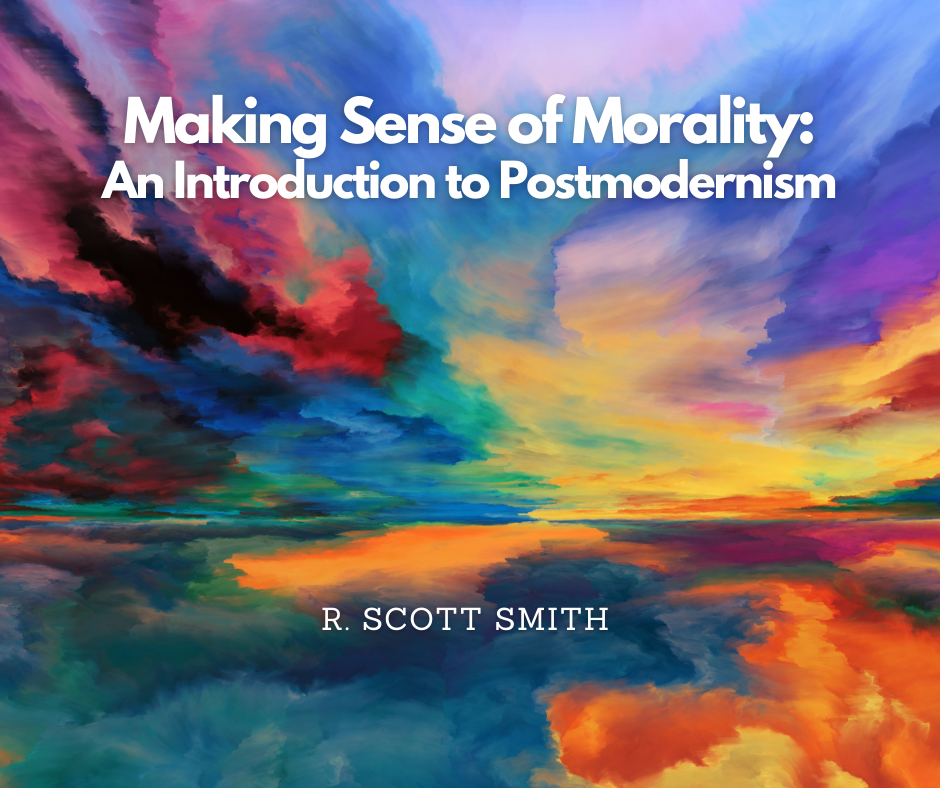Making Sense of Morality: Error Theory
/Editor’s note: R. Scott Smith has graciously allowed us to republish his series, “Making Sense of Morality.” You can find the original post here.
Naturalism and Error Theory
Still another kind of naturalistic moral cognitivism is error theory, which has been defended by J. L. Mackie (d. 1981) and Richard Joyce (b. 1966). Mackie used two arguments for his view. First, the argument from relativity maintains that empirically, there are many moral differences amongst people. For him, the best explanation is that moral judgments are tied to different forms (or ways) of life, each of which has its way of interpreting reality. Second, the argument from queerness says that, if objectively real, moral qualities would be very bizarre things in an otherwise naturalistic world. Since we know natural kinds of things empirically, to know objectively real, intrinsically moral properties would require some extraordinary faculty.
Moreover, moral discourse is dependent upon institutional facts. Unlike brute facts about the world itself, which are natural, institutional facts are social constructs, due to how people in various societies (or forms of life) have constructed their institutions and their rules that guide peoples’ actions, including moral discourse. When people speak as though morals are objectively real and not dependent on their social, institutional settings, they show that moral discourse really is filled with error.
Joyce follows Mackie in that there are no independently real moral facts. Still, as a kind of moral cognitivism, error theorists do maintain that we do make moral judgments. However, since there are no real moral qualities, these claims are systematically false and thus filled with error.
Still, Joyce thinks that error theory does not demand that people give up engaging in moral speech. It is just that, to be consistent, their speech act is only making an assertion. They are not believing these moral claims to be true. Additionally, since error theorists reject the existence of any real moral properties, they deny that any action is moral or immoral. Nevertheless, they still can oppose others’ actions, for that need not require that they believe objective moral properties exist.
Assessment
Error theorists consistently hold that on naturalism, there are no intrinsically moral properties. This naturalistic view of what morals are trades upon language use. They are just ways of speaking according to the “grammar” (or, rules) of a given people that allows them to use moral discourse, yet while (apparently) avoiding the reality of morals.
Now, we will see when we explore ethical relativism that while there is a fact of moral diversity amongst people and cultures, nonetheless those differences may not be as wide or deep as we have been taught. Instead, we can identify common morals that may be applied differently (e.g., how people in one culture show respect for their elders, versus how people in another culture do so). Further, just because there is a descriptive fact of diversity, that alone does not give us ethical relativism, which is a normative thesis.
Granted, too, irreducibly moral properties would be rather “queer” given naturalism. But, perhaps there are independent reasons why we should question that assumption. In later essays, I will suggest a few such reasons.
Moreover, it is true that we may speak in ways that do not necessarily commit us to the reality of things we are talking about. Generally, mere word uses do not have power to cause things to come into existence (except, for instance, stories). A scientific example was talk of phlogiston to explain combustion. Later, however, scientists discovered it was not real; instead, oxygen was what was involved.
Further, error theory does not explain why we find morality to be such a ubiquitous aspect of life. After all, why talk morally if there are no morals? While error theory explains why we can talk morally, given naturalism, it still does not give us an adequate explanation of what morals are. If they are just the way we use words, then we can change morals by changing how we talk. In that case, murder could become right, and justice could become bad. But surely that is false.
For Further Reading
Richard Joyce, “Mackie’s arguments for the moral error theory,” Stanford Encyclopedia of Philosophy
J. L. Mackie, Ethics: Inventing Right and Wrong
R. Scott Smith, In Search of Moral Knowledge, ch. 5
R. Scott Smith is a Christian philosopher and apologist, with special interests in ethics, knowledge, and seeing the body of Christ live in the fullness of the Spirit and truth.





















